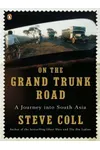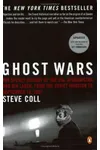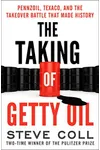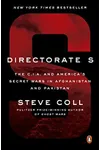Picture an American journalist who unraveled the secrets of the CIA and corporate giants—meet Steve Coll! With a knack for turning complex geopolitical puzzles into gripping narratives, Coll has earned Pulitzer Prizes and a spot as a leading voice in nonfiction. From war-torn Afghanistan to ExxonMobil’s boardrooms, his stories captivate and inform.
As a former Washington Post correspondent, a staff writer for The New Yorker, and Dean of Columbia University’s Graduate School of Journalism, Coll blends meticulous research with storytelling flair. His books, like Ghost Wars and Private Empire, are must-reads for anyone curious about power, politics, and the world’s hidden forces.
The Making of Steve Coll
Born on October 8, 1958, in Washington, D.C., Steve Coll grew up in a world shaped by political currents. He studied English at Occidental College, where his passion for storytelling took root. After graduating in 1980, Coll dove into journalism, starting at magazines before joining The Washington Post in 1985. There, he honed his investigative skills, covering everything from local politics to foreign affairs.
His time as a foreign correspondent in South Asia during the late 1980s shaped his worldview. Immersed in the region’s complexities, Coll developed a deep interest in global conflicts and intelligence operations, setting the stage for his groundbreaking books.
Steve Coll’s Unforgettable Stories
Coll’s books are masterclasses in narrative nonfiction, blending exhaustive research with a storyteller’s touch. His 2004 bestseller, Ghost Wars: The Secret History of the CIA, Afghanistan, and Bin Laden, traces the CIA’s covert operations in Afghanistan from the Soviet invasion to 9/11. This Pulitzer Prize-winning work reads like a thriller, revealing how U.S. policies shaped global terrorism.
In Private Empire: ExxonMobil and American Power (2012), Coll exposes the inner workings of one of the world’s most powerful corporations. Through interviews and documents, he paints a vivid picture of ExxonMobil’s influence on global politics. His 2018 book, Directorate S, continues the story of Ghost Wars, diving into the CIA’s secret wars in Pakistan and Afghanistan post-9/11. Coll’s style—clear, balanced, and deeply human—makes dense topics accessible and riveting.
Other works, like The Bin Ladens (2008), explore the family behind Osama bin Laden, blending biography with geopolitics. Coll’s ability to humanize his subjects while dissecting their impact sets him apart in journalism and nonfiction.
Why Steve Coll Matters
Steve Coll’s work has redefined investigative journalism, offering readers a window into the forces shaping our world. His books have influenced policymakers, journalists, and readers, sparking discussions on everything from national security to corporate accountability. As Dean of Columbia’s Journalism School, he mentors the next generation, ensuring his commitment to truth-telling endures.
Coll’s balanced approach—neither sensational nor dry—makes his stories timeless. His Pulitzer Prizes (two, for Ghost Wars and his Washington Post reporting) underscore his impact, but it’s his ability to make readers care about complex issues that truly cements his legacy.
About Steve Coll
- Born: October 8, 1958, Washington, D.C.
- Key Works: Ghost Wars, Private Empire, Directorate S, The Bin Ladens
- Awards: Two Pulitzer Prizes, National Book Critics Circle Award
- Current Role: Dean, Columbia University Graduate School of Journalism


Ready to dive into a world of spies, oil tycoons, and global intrigue? Grab Ghost Wars or Private Empire and discover Steve Coll’s masterful storytelling!







